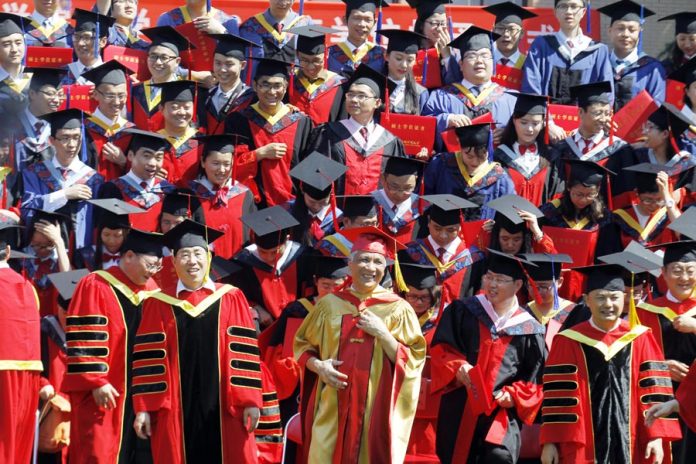As youth unemployment hits fresh high, a record number of graduates are set to enter the job market this year. In the 1960s and 70s, millions of young people in urban areas were ordered to live and work in remote rural villages.
In recent graduation seasons, Wendy Li has promoted government-backed programmes designed to encourage Chinese university graduates to work in the country’s vast and underdeveloped countryside. Such campaigns, under different names, are nothing new, but Li, an undergraduate who works for the student union at a university in Zhuhai, Guangdong province, said the number of applicants had more than tripled this year. “They seem to have become more attractive this year,” she said. “About 40 students from my school, which has 400 students, have signed up. In the past couple of years, about a dozen would do so.”
The authorities have intensified efforts to encourage young people to pursue careers in China’s rural areas amid mounting job pressure and President Xi Jinping’s calls to “revitalise the countryside” to narrow the urban-rural development gap. Reminiscent of the “Down to the Countryside” movement in the Mao Zedong era, modern-day initiatives include a Guangdong plan to send 300,000 university graduates to rural areas by the end of 2025. According to an action plan issued in February, the graduates will work as grass-roots cadres, entrepreneurs or volunteers to contribute to the “return of talent, resources and projects” to the countryside. Most other provinces have also upgraded such programmes by enlarging the number of people being sent or the range of destinations.
In Jiangsu province, an initiative that previously targeted underdeveloped areas in five relatively poor cities was expanded across the province last year, aiming to send at least 2,000 graduates to rural areas each year. Such moves aimed to give young people more job opportunities in a tough labour market, said Peng Peng, executive chairman of the Guangdong Society of Reform, a think tank affiliated with Guangdong’s provincial government. “Young people in urban areas have encountered great difficulty in finding jobs due to the influence of the pandemic and the unprecedented number of graduates,” he said.
The unemployment rate for the 16 to 24-year-old age group in China hit a record high of 20.4 per cent last month, compared with 19.6 per cent in March. Meanwhile, a record 11.58 million university graduates – about the size of Belgium’s population – are set to enter the job market this year. “The second purpose of these policies is to revive the countryside, where talent and technology are most needed,” Peng said. “Rural areas are the weak link in China’s road to modernisation, so they must be revitalised – something the top leadership has made a national strategy.”
South China Morning Post























